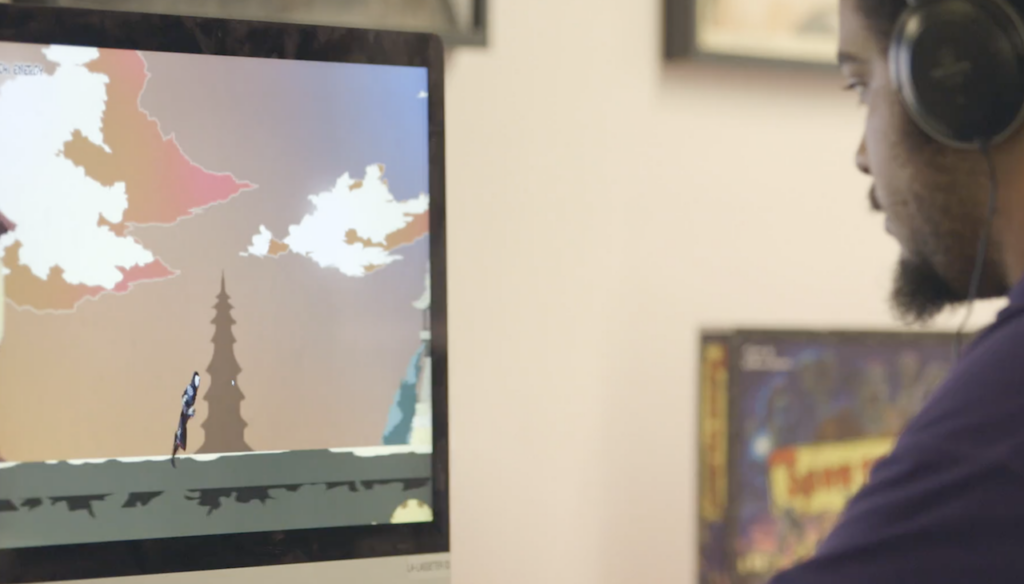Learn How to Be a Game Designer at NYFA
In NYFA’s Master of Fine Arts (MFA) in Game Design program, students learn the tools, theory, and craft of visual storytelling in an interactive medium, building their confidence in programming and design. Through hands-on, project-based learning, MFA students study a range of topics from early digital games to highly-advanced 3D graphics. Students build a playable, portfolio quality game every semester in our Game Studio courses.
The MFA students round out their education with history, business, and ethics of video games.
Upon completion of the MFA in Game Design, students have expertise in game design, with a selection of their best game content for use in their personal portfolios. The MFA program is rigorous and challenging and is recommended for aspiring game designers with ambitious goals in interactive media.
Faculty Highlights
Curriculum
The MFA in Game Design program is available at NYFA Los Angeles. In this program, students take advanced courses and workshops that teach the theories of game design and interactive storytelling. Students also master the process of creating 3D art for video games and and learn the concepts of agile development. The curriculum also includes:
- The framework to build a fun, entertaining, and engaging game every semester
- Instruction and mentorship from our experienced faculty of professional Game Designers
- Access to industry-standard equipment and software
- The ability to attend exclusive guest speaker events with industry experts such as Game Designers, Filmmakers, 3D Animators, and and more
To learn more about the MFA program, refer to NYFA’s Course Catalog or request more information.
NYFA’s MFA in Game Design is a four-semester, full-time graduate program.
MFA students complete a variety of projects to build an impressive personal portfolio, which may include paper prototypes, the creation of 2D, 3D, and virtual reality games, 3D animations, and many more. These projects are designed to teach students how to design video games on all platforms, including PC, console, portable, Internet, iPhone and iPad. To learn more about the projects MFA students complete, please visit our projects page.
At NYFA’s Game Design School, students get a balanced education that equips them with critical thinking and problem solving skills. In addition to their game design courses, MFA students also take The Ethics of Game Design, a course specifically designed to support their education in game design. MFA students can learn more about these requirements on NYFA’s History and Theory Courses program page.
The MFA in Game Design is available at NYFA Los Angeles.
3300 W Riverside Drive
Burbank, CA 91505
Master of Fine Arts Degree in Game Design
| Location | Program Start Date and End Date | Tuition |
|---|---|---|
| Los Angeles | January 12, 2026 – April 24, 2027 August, 2026 – April, 2028 | Spring 2026 Semester The program semesters tuition and duration is listed below. In addition to tuition please review the programs associated feesTuition:$19,900 Per Semester Departmental Program Fee:$1,325 Per Semester Program Duration: Spring 2026 (January start): 4 SemestersFall 2026 (August start): 5 Semesters Fall 2026 Semester The program semesters tuition and duration is listed below. In addition to tuition please review the programs associated feesTuition:$20,500 Per Semester Departmental Program Fee:$1,500 Per Semester Program Duration: Spring 2026 (January start): 4 SemestersFall 2026 (August start): 5 Semesters |
*Additional Fees:
Spring 2026 – Summer 2027
| Technology Fee: | $80 Per Semester |
| Wellness Services & Programming Fee: | $145 Per Semester |
| Activity Fee: | $125 per semester |
| Orientation Fee: (Spring 2026: January 5th – January 9th) |
Domestic Students: $150 International Students: $200 |
| Graduation Fee: | $100 |
| International Student Fee: | $200 for the first semester, $120 each subsequent semester |
Please note: Equipment, curriculum, and projects are subject to change and may vary depending on location. Students should consult the most recently published campus catalog for the most up-to-date curriculum.




